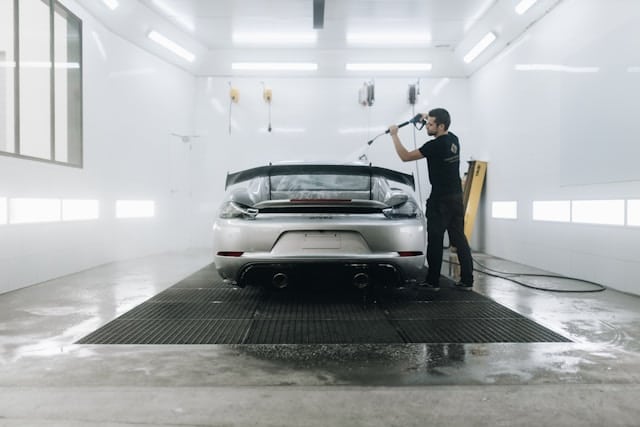How to Tell If Insurance Is Undervaluing Your Repair Claim
 After an accident, you expect your insurance to cover the costs of getting your car safely—and properly—repaired. But what if the quote from your insurer seems suspiciously low?
After an accident, you expect your insurance to cover the costs of getting your car safely—and properly—repaired. But what if the quote from your insurer seems suspiciously low?
At Chaney’s Collision Centers, we know that understanding the signs of an undervalued claim can make the difference between a smooth repair and a costly headache down the line. Here’s how to spot the red flags and make sure you receive the compensation you truly deserve.
Signs Your Repair Claim Is Undervalued
1. The Offer Is Rushed and Low
If your insurer tries to settle extremely quickly—often with a “take-it-or-leave-it” offer—be cautious. Fast settlements may indicate a lowball offer designed to close the claim before you fully understand the extent of the damage or costs. Always take your time and review the proposed compensation in detail.
2. The Payout Doesn’t Cover the Actual Costs
Carefully compare the offer to the real-world quotes or itemized estimates you’ve received from reputable collision centres. Undervalued claims often fall short of covering genuine repair costs, especially if:
- The insurer only accounts for discounted rates from their preferred repair shops.
- Your estimate includes original manufacturer (OEM) parts, but the insurer bases their offer on cheaper aftermarket alternatives.
- Certain types of damage or necessary work are missing from the insurer’s scope of repairs.
3. Incomplete or Vague Explanations
Your insurance company should provide a transparent breakdown of how they arrived at the payout figure. If you receive a one-line summary or an unclear explanation, or if the calculations don’t make sense, this is a classic sign your claim might be undervalued.
4. They Ignore Your Documentation or Independent Estimates
If you present invoices, competitive estimates, or professional assessments that clearly outline higher costs but the insurer refuses to adjust their offer, this signals an unwillingness to pay the true value required for safe, quality repair.
5. Pressure to Use a “Preferred” Shop
Some insurers encourage you to use their network repairers—often at discounted rates that may not reflect fair market costs. You have the right to choose your repairer and aren’t obligated to accept insurer-preferred shops if you believe the work or estimate is insufficient.
6. The Offer Omits Important Repair Steps
An undervalued claim might skip vital procedures such as recalibration of safety systems, blending paint for a true colour match, or addressing hidden damage identified by the body shop. If your repair professional flags missing items in the insurer’s estimate, raise these concerns with your provider.
What to Do If You Suspect Your Claim Is Too Low
- Get Itemized Independent Estimates: Obtain detailed quotes from trusted repair professionals, ensuring all repairs and genuine parts are covered.
- Request Written Justification: Ask the insurer to provide their rationale for the offered amount, referencing your independent estimates.
- Document Everything: Keep records of all communications, estimates, and invoices.
- Negotiate—Don’t Accept the First Offer: Provide supporting documentation and ask for a review or reconsideration of the payout.
- Escalate If Needed: If you can’t reach agreement, seek legal advice. Regulatory bodies can review complaints where insurers may be undervaluing claims.
The Chaney’s Collision Centers Advantage
Our team regularly assists customers in reviewing and challenging undervalued insurance claims. We provide detailed, transparent estimates and advocate for repairs that meet the highest safety and quality standards. Don’t let a lowball offer leave your car—and your wallet—shortchanged.
When it comes to protecting your investment after an accident, knowledge is power. Recognize the signs, insist on fair treatment, and always seek help from a collision repair partner who puts your interests first.

